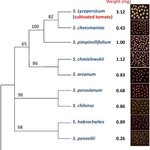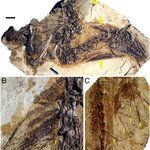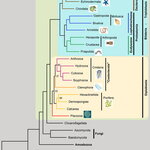
Show Me The Science Month Day 4
How did we become human? You can ask the same question in a slightly different way: how did we become different from chimps? Although the common ancestor that we shared with chimps 5-7 million years ago was not itself a chimp, it probably resembled modern-day chimps much more than it resembled us. Both humans and chimps have been changing under evolutionary pressure since our lineages split, but humans have obviously picked up traits that make us stand out from other modern apes, most notably our intelligence.
To understand how evolution has shaped our…


